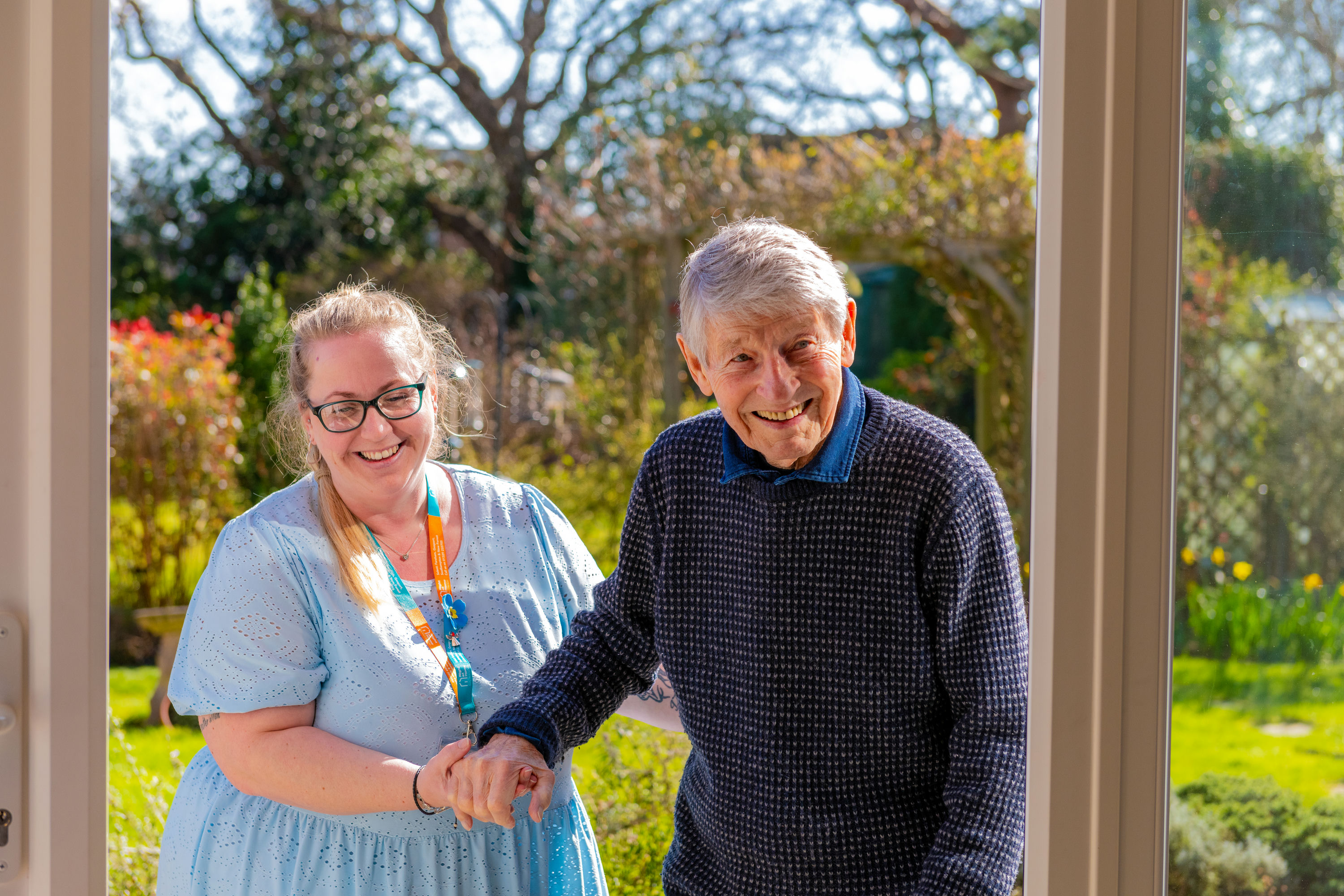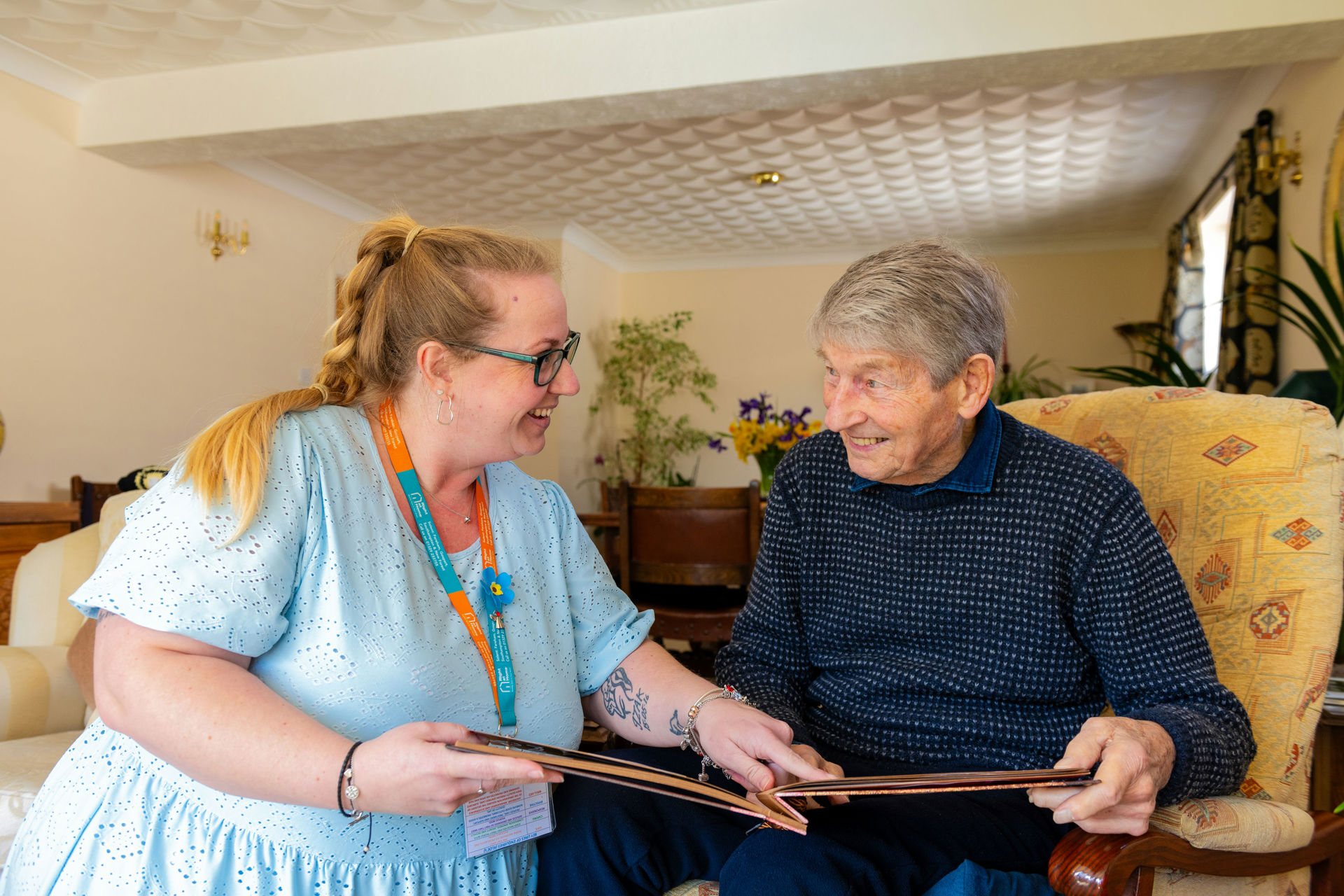What is Dementia?
More than just memory loss, dementia affects each individual differently and in several ways. This short blog introduces the most common types of dementia and symptoms.

Published: 10/05/2024
What is Dementia?
With more than half of the UK population knowing somebody who has been diagnosed with dementia, it is important to have a basic understanding of what dementia is and how it affects people. Dementia is an umbrella term for a range of neurocognitive conditions that affect the brain in a number of ways and interfere with daily life. There are over 200 identified subtypes of dementia, with the most common and well-known being Alzheimer’s disease, vascular dementia, Lewy body dementia, frontotemporal dementia, and mixed dementia.
What are the symptoms?
People think of dementia as memory loss, but it can also affect how a person speaks, thinks, feels, and behaves. In the early stages, a person’s symptoms can be relatively mild and can often go unnoticed. Dementia is a progressive disease, meaning the symptoms get gradually worse over time, but which symptoms and how they present depends on the individual.
Cognitive and sensory symptoms:
- Memory loss
- Thinking speed
- Language; finding the right words, pronunciation
- Challenges in problem solving
- Motor skills; difficulty handling complex tasks
- Unable to identify persons or objects
- Altered sense of smell and taste
Psychological symptoms:
- Changes in personality
- Anxiety
- Mood swings
- Agitation
- Decreased/poor judgment
This is not an exhaustive list but an example of what a person may experience.
How many people have dementia?
Almost 1 million people were estimated to be living with dementia in the UK in 2021, with the number expected to rise to 1.6 million by 2050. Around 40% of those aged 65 and over thought to be living with dementia do not have a diagnosis.
- 944,000 (UK est.)
- 55 million (worldwide est.)
It is true that more people in the developed world, and especially Europe, are diagnosed with dementia. The simple reason for this is that the living standards, technology and medical advancement is higher, which leads to longer life expectancy - and the longer you live, the greater chance you stand of developing dementia. Most people with dementia are 65 or older, with ‘early onset dementia’ usually referring to those around the age of 50, but it can manifest in people as young as 30.
Why is it important to get a diagnosis?
Memory loss can happen to all of us occasionally, and it is important to remember that memory loss or brain fog doesn’t necessarily have to be a symptom of dementia. But if it affects your daily life, or somebody you know well, it is strongly encouraged to seek help from a GP.
Getting a diagnosis means that you can access personalised care and support, as well as treatments than can help control and, in some cases, slow down the symptoms. It means that you can plan ahead, make adjustments and prepare yourself and your loved ones better for what lies ahead.
Professional CareGivers, support groups specialising in dementia care and other healthcare professionals can offer valuable guidance, education and emotional support.
How can we help?
With the right treatment and support, many people are able to lead an active, fulfilled life with dementia, and tailored home care allows people to stay at home for longer than most people assume is possible. If you would like to know more about how we can support you and your loved ones, please call us on 01323 414 658 to speak to a member of our office team, or contact us via this form.

